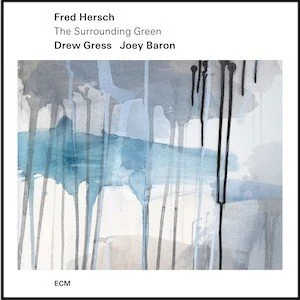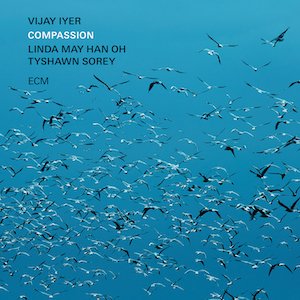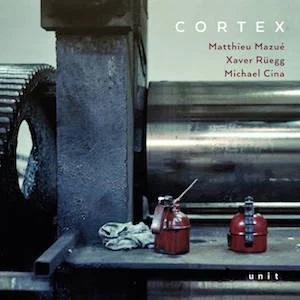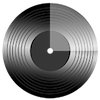Label: ECM Records, 2025
Personnel - Fred Hersch: piano; Drew Gress: bass; Joey Baron: drums.
Following an excellent solo album—Silent, Listening (ECM, 2024)—pianist and composer Fred Hersch reunites with longtime friends and collaborators, bassist Drew Grass and drummer Joey Baron, for a fine trio session. They perform three Hersch originals, one jazz standard, and three spectacular, distinct covers of tunes by free jazz saxophonist Ornette Coleman, Brazilian guitarist Egberto Gismonti, and influential bassist Charlie Haden.
Hersch’s “Plainsong”, a piece previously recorded on the solo piano album Open Book (Palmetto, 2017) opens the proceedings with dreamy romanticism and vast erudition. “The Surrounding Green” is another of his meditations, radiating light through every note and grounded by the aesthetics of Baron’s classy brushwork.
The trio leans on joyous melodic gestures on “First Song”, a gem by the late Charlie Haden, with whom Hersch played on Sarabande (Sunnyside, 1987), a recording that also features Baron behind the drum kit. Gress launches this charming ballad with a fine bass intro, creating a welcoming space. Gismonti’s early ‘80s composition “Palhaço” is a 3/4 joy that showcases the trio’s emotional synchronicity and deep musical rapport built through years of collaboration. This is a lovely melodic number with wide possibilities to expand.
Yet, not quite as expansive as Ornette Coleman’s “Law Years”, whose freer gestures use ambiguity as a tool, along with a few well-placed crescendos that create a tense elasticity. After Gershwin’s well-known standard “Embraceable You”, here rendered at an unexpectedly dynamic tempo, the trio closes with Hersch’s “Anticipation”, a lyrical yet motion-filled piece delivered with a sophisticated jazz-meets-bossa flair.
Hersch, who has also played for years with a different trio—featuring John Hébert and Eric McPherson—discovers fresh nuances in this configuration, in a record where the standout moments come through the lesser-known covers.
Favorite Tracks:
02 - Law Years ► 04 - Palhaço ► 06 - First Song




















